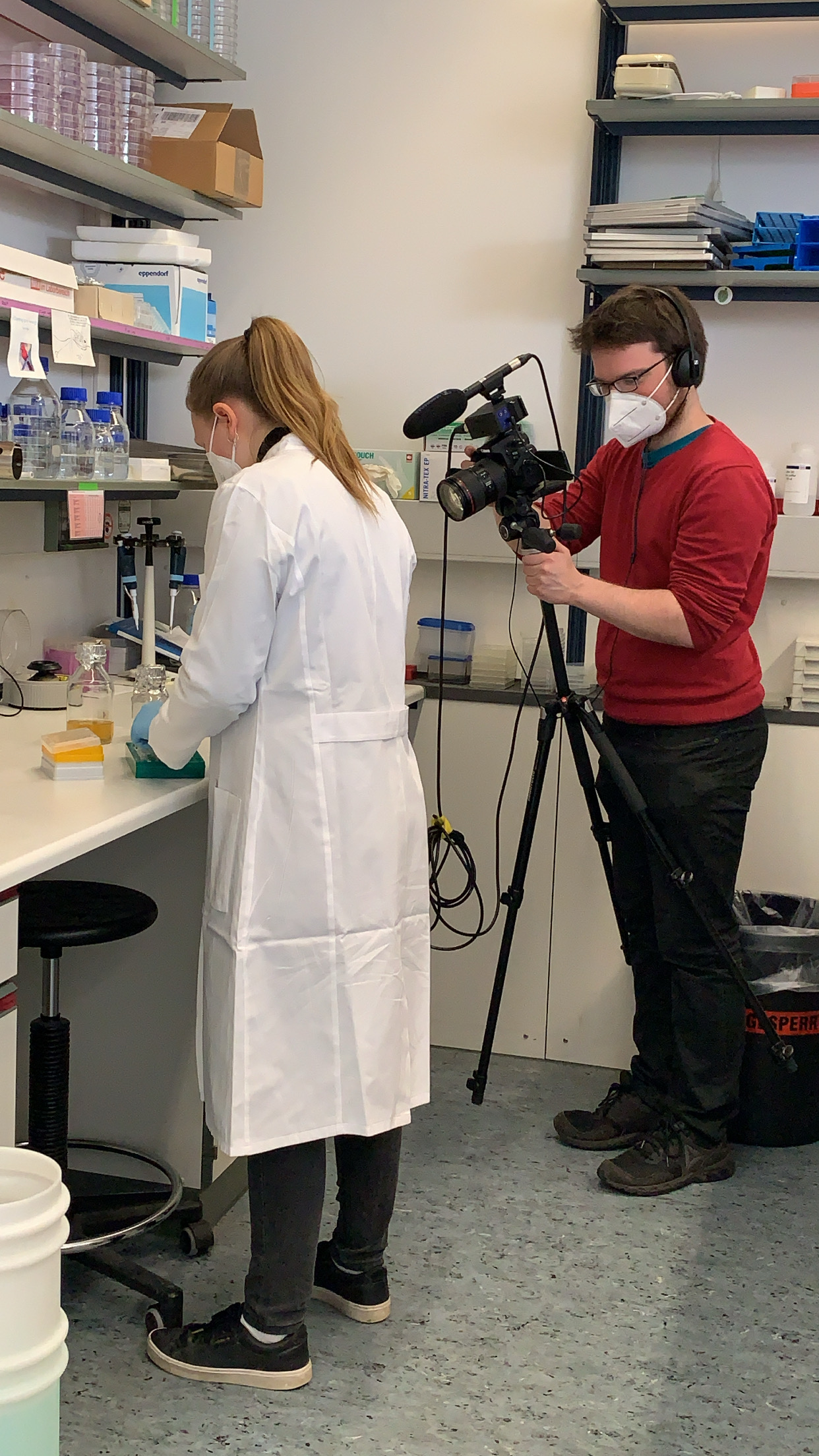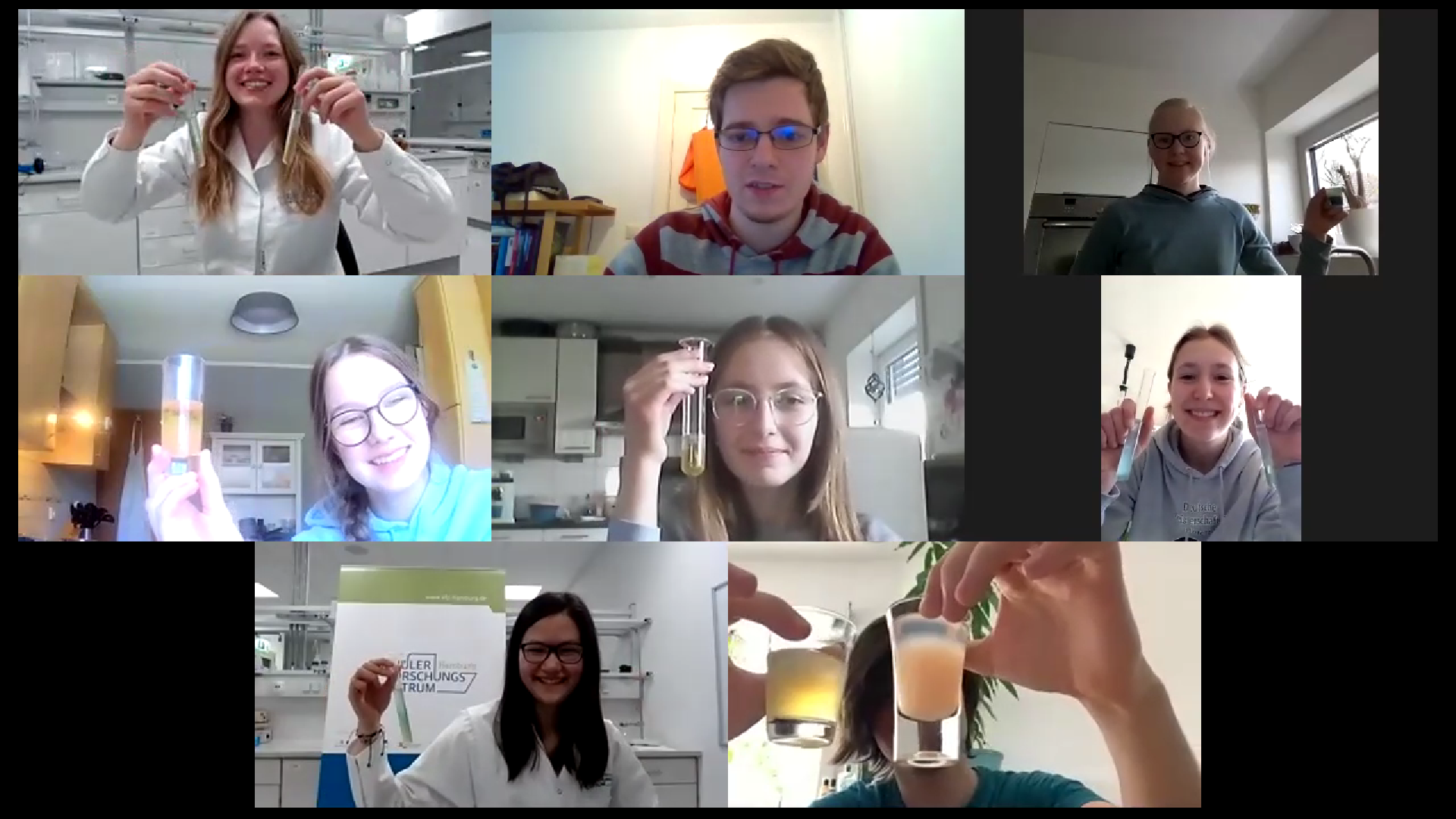Girls and Boys Day 2021
Girls‘ and Boys‘ Day 2021 – life concerns all of us!
“Future Days” in 2021: a day to discover exciting professions or – in our case more accurately – to research them. On April 22nd, the time had come again: Interested students and young researchers were able to look behind the scenes of biochemical research. The iGEM-Team Hamburg, in cooperation with the SFZ Hamburg, provided a diverse digital offer. School students listened to lectures from students’ and researchers’ perspectives to learn about career paths in science. Moreover, through an adventure movie in the lab and an own experiment, the iGEM-Team could offer a broad variety in program.

Girls‘ and Boys‘ Day – vocational orientation
The Girls’ Day was originally founded in 2000 as orientation day for young women to explore male dominated work fields in Germany. Since 2011, the counterpart – the Boys’ Day – provides an insight in female dominated professions. This day supports equality regarding education and opportunities. It also counteracts traditional division of gender roles.
Biochemistry – the science of life
The day started with a discussion about some of the big questions in life: What defines life? In which forms do we find it on earth? And of course: What are living organisms made of? As the science of life, it is the mission of biochemists to deal with precisely these questions. So what could be more suitable on a Girls‘ and Boys‘ Day than to discuss answers and ideas to these exciting questions? The students were able to work their way from the visible, macromolecular level down to the smallest, microscopic level. Particularly fascinating here was the following idea: Despite the many differences we can find between animals and plants, between bacteria and humans, our composition is completely identical. The diversity of the universal code of life – DNA – fascinated every age group.
SFZ Hamburg – Student Research Center
One of the most important approaches in education: raising the next scientist generation by encouraging school students to follow their own ideas. To reach this goal, the Student Research Center in Hamburg (SFZ Hamburg) provides laboratories, a workshop with technical equipment and many motivated employees as teachers and students in different scientific fields. Thus, the SFZ supports school students working on their own projects, educating themselves in seminars and taking part in science competitions.
Biohackers – genetic engineering in researchers’ everyday life
What shouldn't be missing on a day of professional orientation? An insight into everyday work. Even if the students were not allowed to visit the laboratories in person this year, they were still able to digitally breathe a little laboratory air. First, the film “Biohackers”, made by the iGEM-Team Hamburg, provided a brief overview of the day-to-day work in the biochemistry lab. Embedded in some fictional action scenes, in which an essential protein had to be produced to save humanity, genetic engineering methods were explained in a playful way. In this way, the iGEM-Team provided an insight into different fields of research and applications for genetically engineered organisms. Thus, the Team gave an overview of producing drugs biosynthetically to explain their research goal on the iGEM competition.
Career in science
The school students found out more about one of numerous research fields in biochemistry: Prof. Dr. Zoya Ignatova told the students about her career path and work in various research groups. Above all, she emphasized the importance of collaboration in science on an international level and her passion for her own specialty – research in hereditary diseases based on genetic mutations.
DNA within one’s reach
At home, the children sprang into action themselves and isolated DNA from tomatoes – with success! By means of detergent, salt and a water bath, the young researchers disrupted the tomato cells. After adding detergent and filtering the tomato cell residues, the thread-like DNA could be examined in one’s own kitchen. While experimenting, the students clearly had fun and proudly presented their results.
The students were motivated right from the start and, with many in-depth questions, ensured a very lively discussion – even online. In our opinion, the Girls ‘and Boys‘ Day was a complete success this year and we look forward to supporting many motivated young researchers in the future!


